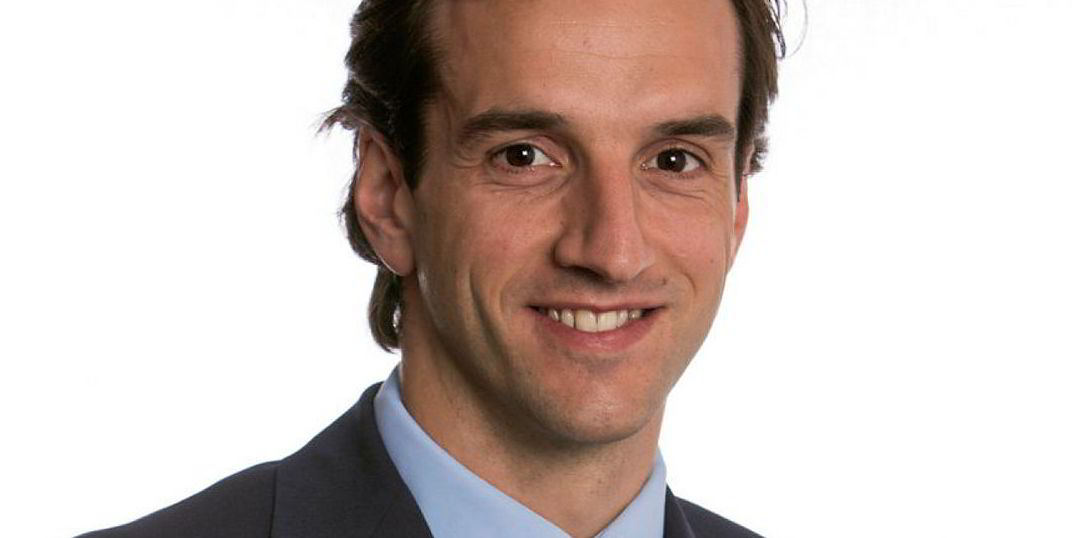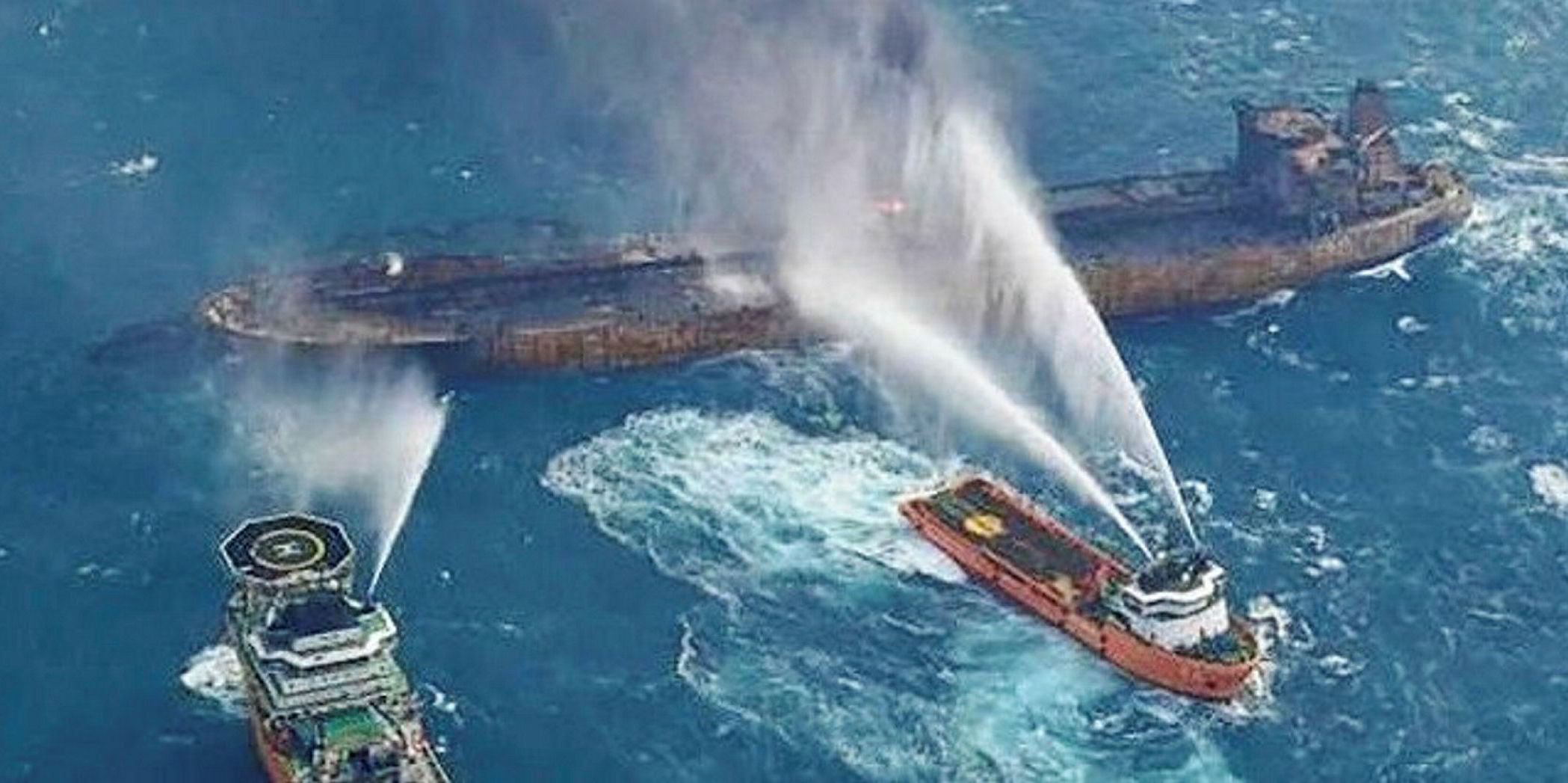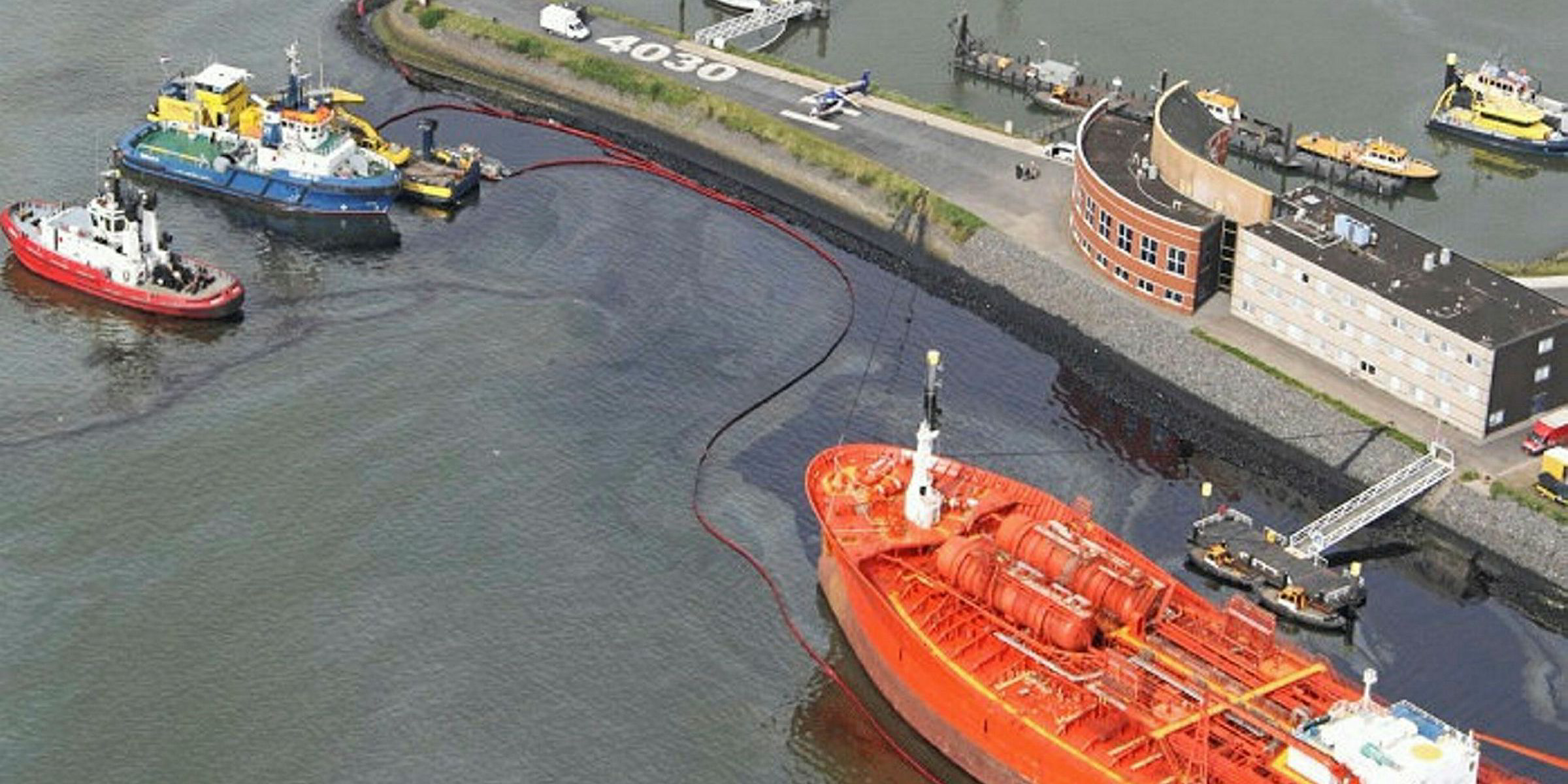Shipping is a major carrier and emitter of pollutants so it has rightly come under increasing scrutiny from regulators.
The industry is subject to ever-stricter environmental legislation and targets, the latest being the IMO's 0.5% global sulphur cap on marine fuel that comes into effect from January.
Exhaust gases aside, the industry has gone a long way to clean up its act since the days of the Torrey Canyon and Exxon Valdez oil spills.

In the spotlight
International pollution-response adviser IOTPF confirms a real improvement, with an average of just six medium and large spills per year this decade, compared with 79 per year in the 1970s.
Unfortunately, big oil-pollution accidents can and still do happen: the 113,000 tonnes of condensate dumped into the East China Sea by the Sanchi last year dragged shipping firmly back into the spotlight.
Even the slightest evidence of pollution can now lead to any nearby ship being arrested or detained pending a full investigation to find the guilty party and make them pay.
So what can shipowners do to protect themselves in the face of this generational shift in attitudes?
Even the slightest evidence of pollution can now lead to any nearby ship being arrested or detained pending a full investigation to find the guilty party and make them pay
The solution is basically three-fold: fully understand and conform to the latest environmental standards, continually improve risk management and training onboard, and make sure you are properly insured.
Cost of delays
There is a vast amount of information and support for the first two and most ships will have pollution liability cover through their protection and indemnity policies.
But the key word regarding the latter is "liability" — while P&I policies cover clean-up costs and pollution fines, they do not protect shipowners against the huge amount of lost time caused by such incidents, whether they are responsible for them or not.
By way of example, when a hose bursts during a routine ship-to-ship transfer of an oil cargo or fuel oil, the delay can be substantial. In a recent case, the oil spilled over the receiving vessel’s deck ended up on the coastline.
The deck needed to be cleaned and the pipe replaced before the transfer could continue, and the authorities prevented the vessel from leaving until its P&I club provided security for pollution fines and costs.

The total delay was 17 days at a cost of $8,000 per day.
Innocent bystanders
A similar situation can occur even when it is not a ship’s fault. For example, a vessel had just finished loading cargo at Rotterdam Botlek last summer when its hull became smeared with fuel oil spilled from the 37,499-dwt Bow Jubail (built 1996).
The port was immediately closed for five days for investigation and clean-up operations, after which the vessel had to queue for two days for hull cleaning before being allowed to depart.
The total delay was seven days at a cost of $5,000 per day.
Air pollution incidents can also result in delays. An approved exhaust gas scrubber system recently failed on a vessel entering the Singapore emission control area, which was picked up during a routine investigation by the Maritime and Port Authority of Singapore.
The vessel was detained until a fine was paid, causing a total delay of three days at a cost of $12,000 per day.
Fortunately, all three ships had taken out delay insurance for actual or alleged pollution in addition to their normal P&I cover.
Prudent approach
These examples show the increasing range of problems that shipowners are facing in relation to air and sea pollution. They also demonstrate why there has been a growth in tailored delay insurance policies.
In today’s increasingly environmentally aware society, having cover for lost time from “actual or alleged” pollution can provide a safety net.
Nick Rowe is underwriting director of The Strike Club






